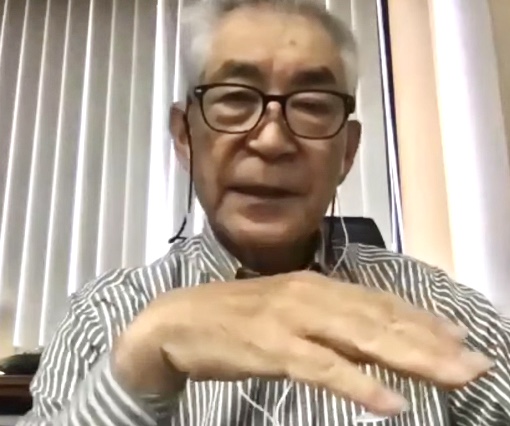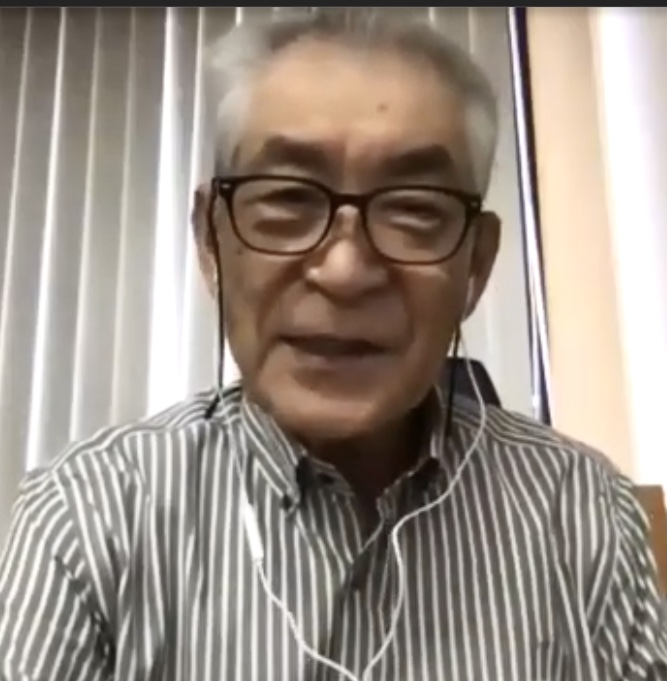





Anthony Rowley
Tokyo- Cheese as a weapon against the coronavirus? The idea that such a humble dietary item could help fight the global pandemic sounds almost absurd, but a Japan Nobel prizewinning immunologist argues that, along with other fermented foods, cheese can be a warrior in the battle against COVID 19.
Tasuko Honjo, Deputy Director-General and Distinguished Professor at Kyoto University Institute for Advanced Studies is Japanese and the Japanese know a lot about the benefits of fermented foods such as Natto, made from soy bean and Miso paste, another bacteria-rich staple of the national diet.
Professor Honjo puts cheeses - especially those where the fermentation process has produced chemical change - alongside more exotic Japanese foods as agents to help strengthen the human immune system, which is on the front line of defence against the coronavirus and other attackers.
While mundane items of food do not enjoy the publicity given to coronavirus remedies as such as Avigan (a Japanese discovery) or Remdesevir produced by Gilead Sciences in the US, and which are not in the spotlight like possible vaccines, the human immune system is key to the fight against coronavirus
More specifically, as Professor Honjo pointed out in a recent discussion at the Foreign Correspondents Club of Japan, research on "immunotherapy" has proved that the treatment can curb and even cure a range of cancers. He believes that it may lead to cancer being conquered within a decade or so.
Attention is now turning to immunotherapy as a possible means to defeat viruses such as COVID 19, the veteran scientist suggests. Part of that therapy has to do not only with applying exotic, front-line technology but also with a healthy diet and lifestyle, according to professor Honjo.
The Japanese can speak with some authority on this score. While the coronavirus infection rate in Japan has been high (and Japan's response to the pandemic "not exemplary" as one IMF official put it), the mortality rate among Japanese who contracted the virus has been relatively low.
According to data published by Johns Hopkins University, the mortality ratio (number of deaths divided by the number of coronavirus cases) in Japan is 4.2 per cent compared with 15.2 percent in France,14.4 percent in the UK, 14 percent in Italy, 13 per cent in Spain and 6 percent in the US.
This is all the more remarkable given that Japan has one of the world's most rapidly ageing populations with one third of the population being people over the age of 60 years. The elderly are the most vulnerable to serious illness and death among coronavirus patients.
Experts such as professor Honjo attribute this relatively low mortality rate in part to the attention paid by most Japanese to "cleanliness," whether in wearing face masks in public places as a guard against colds or flu, to hand washing, and to avoiding hugging and kissing or even handshakes.
But it also has to do with maintaining a healthy immune system by means of a good diet, exercise and sleep. In order to be termed "good" a balanced human diet should include liberal amounts of fermented foods, the Japanese believe and most of them practice what they preach in this regard
Natto (which has a kind of "nutty" flavour) and Miso (usually in the form of Miso soup) are items of daily consumption in Japan. But there are "thousands" more fermented food and drink items, according to the Heart Foundation, a New Zealand-based charity.
Among these it lists, cultured milk and yogurt, wine, beer, cider, tempeh (a traditional Indonesian product made from fermented soybean which is popular in Japan), miso, kimchi, sauerkraut and fermented sausage. This list is by no means exclusive - not least because it does not include cheese.
Among the better-known fermented varieties are various types of Blue Cheese, Goat Cheese (Chevre), Pecorino Romano, Cottage Cheese. Cheddar Cheese, Feta Cheese and Mozzarella Cheese and there are myriad others. Middle eastern cuisine boasts its own rich variety of fermented foods.
Professor Honjo steers clear of recommending herbal or other remedies to strengthen the immune system against coronavirus and other diseases. apparently not wishing to be seen favoring any one compound over another, but sales of echinacea and Korean ginseng have soared in Japan of late.